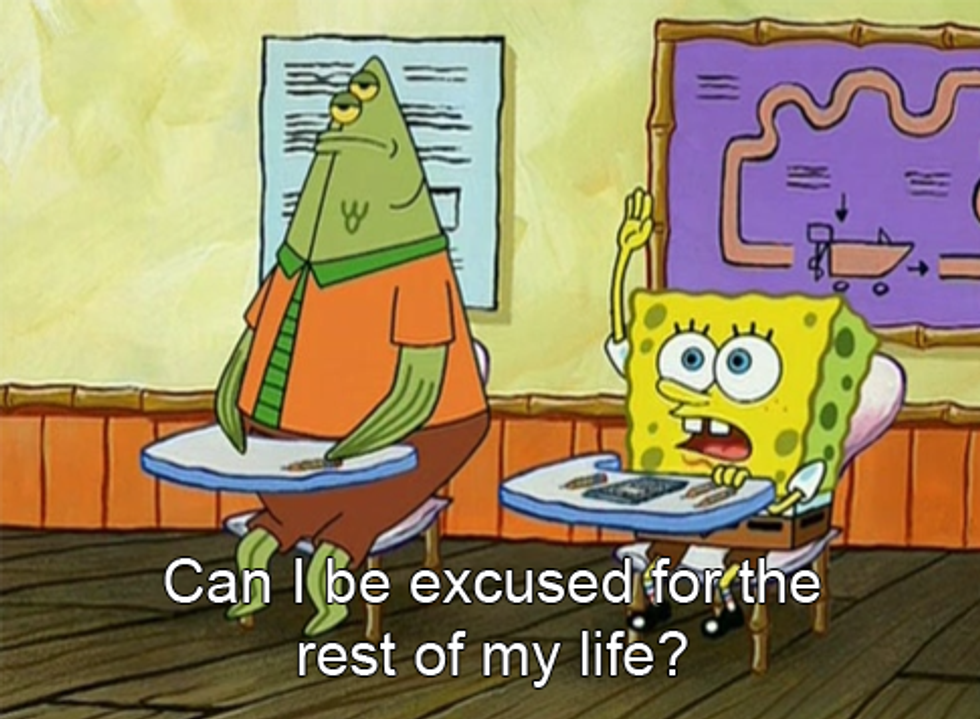Trigger Warning: This post may inflame those who have a personal vendetta against trigger warnings.
Now that that's out of the way -- let's talk about it. Trigger warnings essentially give readers a heads up that following content may be offensive or triggering of a strong emotion. I don't really understand why giving this warning has become so controversial, but it has. Some say that trigger warnings imply that women are weak, others complain that they coddle the mind.
Allow me to put these misconceptions to rest to the best of my ability.
First of all, trigger warnings do not mean that anyone is weak. Needing a trigger warning can mean that you have been affected by a past trauma or aggression, and this does not make you weak -- on the contrary, I would argue. You are a survivor. Not wishing to relive that past trauma any more than you already do does not make you weak; it makes you smart.
Why? Because your brain is trying to protect itself.
According to this source:
"Damage to the hippocampus from stress can not only cause problems in dealing with memories and other effects of past stressful experiences, it can also impair new learning."
This means that trigger warnings can help those struggling with past traumas avoid losing actual brain functionality -- and some people think this is a bad thing?
Which brings me to my next point: trigger warnings do not coddle the mind.
Unless you see helping to keep the mind in a healthy state as coddling? Acknowledging emotions and acting accordingly is not coddling your mind, it's being self-aware. It is healthy.
Not to mention, trigger warnings aren't new.
Ever seen one of these at the beginning of a program or video?
Is this not a trigger warning, to an extent? Most written trigger warnings also warn against disturbing content, such as racism, sexual assault, rape, violence, miscarriage, loss, among other tragedies.
Allowing the reader to know what lies ahead puts the reader in control of what they will feel that day, because it allows them to choose whether or not to read triggering content, which is incredibly empowering.
Furthermore, trigger warnings are not an apology for the content that lies ahead, nor do they negate the potential importance of the content ahead. Trigger warnings are not attempting to discourage readers from dealing with emotions, or reading important messages, they are simply allowing readers to exercise caution while reading.
Traumas should not be a plot twist or surprise to readers anymore than ratings of a film should be a surprise to viewers.
Instead of whining about trigger warnings and how much they annoy you, perhaps that energy could be spent towards helping those with Post-traumatic Stress Disorder, or learning to be more sensitive to those that find different content than you do offensive.
Trigger warnings are helping people, but complaining about them is not. So kindly, buzz off.





















